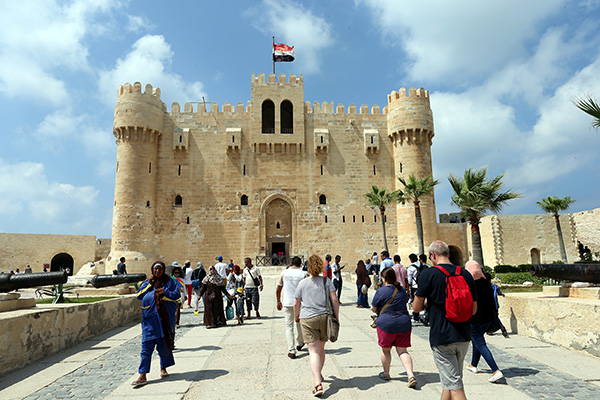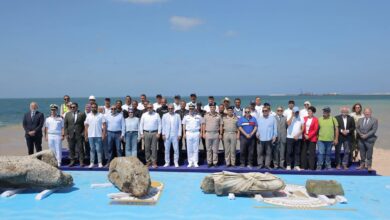
A total of LE235 million has been allocated to renovate the historic Citadel of Qaitbay in Alexandria, nearly one year after Egypt’s Secretary General of the Supreme Council of Antiquities denied statements that the fortress might collapse due to its cavities being filled with seawater.
According to Governor Mohamed Sultan, the renovations will kick off in April and it will mainly focus on the stones on which the fort was built, Sultan said during the Alexandria Youth Forum at the Bibliotheca Alexandria.
The renovation comes after earlier assessments done by archeological and geophysical experts in 2015. Archaeological expert Abdel Raheem Rihan warned against a potential catastrophe as the caves under the citadel have been filled with the sea water, especially under the main rock on which the citadel is based, which threatens its stability.
However, according to Mostafa Amin, Secretary-General of the Supreme Council of Antiquities, “The Qaitbay Castle is completely safe in terms of construction and architectural status,” adding that a comprehensive inspection of the castle’s main rock has been conducted, and it included a check-up on the castle’s bowl from the inside, using ground radar and laser diode.
According to the Ministry of Antiquities, the latest inspections took place July last year, after which the inspection team had agreed to continue monitoring the discovered cavities using radar, magnets and electrical sensors “to obtain a comprehensive assessment.”
“The effect of the waves on the main rock and techniques to repel them away from the castle will also be studied according to the results of the geophysical inspections,” the Antiquities ministry said in a statement.
The Citadel of Qaitbay is a defensive fortress built by Mamluk Sultan Al-Ashraf Qaitbay, who ruled Egypt from 1468 to 1496. It is considered one of the most important defensive strongholds, not only in Egypt, but also along the Mediterranean Sea coast.




